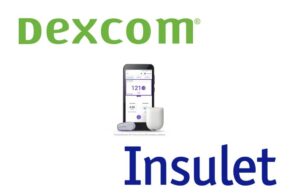 Major players in the diabetes space could join forces as Dexcom (Nasdaq:DXCM) is reportedly in discussions to acquire Insulet (Nasdaq:PODD).
Major players in the diabetes space could join forces as Dexcom (Nasdaq:DXCM) is reportedly in discussions to acquire Insulet (Nasdaq:PODD).
Bloomberg reported today that people “with knowledge of the matter” have said talks are ongoing over a potential acquisition and even said an agreement could be reached “in the coming weeks.” Bloomberg said its sources preferred to remain anonymous because the information is private and both companies declined to offer comment.
No potential financial figures related to any acquisition discussions were revealed in the report.
San Diego-based Dexcom, a leader in continuous glucose monitoring (CGM) technology, and Insulet, an Acton, Massachusetts-based automated insulin delivery technology maker, are not new to one another. The two companies partnered in early 2020 to use Dexcom’s CGM with Insulet’s wearable pump and have since worked together on next-generation technologies, as Insulet’s recently FDA-cleared Omnipod 5 automated insulin delivery system uses Dexcom’s G6 CGM.
Officials from both companies have previously said that once Dexcom’s next-generation G7 CGM receives FDA approval — which could come as soon as next month with current expectations of a regulatory nod after the American Diabetes Association Scientific Sessions — work will be done to integrate it into the Omnipod 5 platform.
The news of a potential acquisition comes at an interesting time. Insulet announced earlier this month that CEO Shacey Petrovic was stepping down due to personal reasons. She will be succeeded by ResMed executive Jim Hollingshead, beginning June 1.
BTIG analyst Marie Thibault wrote in a report that such a deal would be surprising as the timing is unfavorable with Dexcom’s stock price currently near a two-year low (down 40% year-to-date) and Insulet down 24% in 2022.
Additionally, the analyst believes an acquisition would appear to be a detour from Dexcom’s focus on growth in the non-intensive type 2 diabetes market, while it could represent a departure from open innovation in diabetes tech and — she stressed it is BTIG’s “own supposition” — it could result in fewer choices for patients.
“We do not typically write notes in response to such reports, but such a potential deal, if it were to happen, would likely be transformative and impactful to the diabetes technology landscape,” Thibault wrote. “We think the potential deal would make sense in some ways, as it would unite two fast-growing major players entering new product cycles that are both expected to grow 20+% over the next few years. … There would likely be synergies since the companies sell into the same clinician call points, have relatively similar margin profiles, and we believe they share similar philosophies on commitment to R&D, marketing, and education. We think the merits of a potential deal, if announced, would likely be debated by investors.”
PODD shares shot up more than 5%, to $214.71 apiece, in morning trading, while DXCM shares took a hit, down more than 8% to $295.38 apiece. MassDevice and DDBN‘s MedTech 100 Index, which includes stocks of the world’s largest medical device companies, was down slightly.

